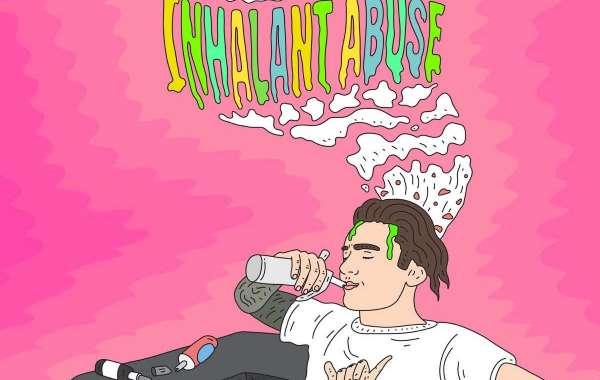The use of inhalants can cause many problems including long-term damage to the organs and bodily functions and even a serious heart condition. Fortunately, there are some things you can do to help treat inhalant addiction.
Symptoms
Inhalant abuse can have many devastating effects. They can cause damage to the brain, body, and mind. If you or a loved one has used inhalants, you should seek treatment. The best way to treat the addiction is with an inpatient rehab program.
An inhalant is a chemical that is inhaled by a user. It is typically a semi-liquid substance that gives off a strong vapor. Users can concentrate the substance by putting it in a plastic bag.
One of the most common effects of inhalant abuse is a loss of consciousness. People who have abused inhalants for a long time may experience an irregular heartbeat. This can lead to heart failure.
A chemical pneumonia is a medical emergency that can kill within minutes. Abuse of toxic substances can also overstimulate the muscles and tissue and lead to death.
Another symptom of inhalant abuse is hallucinations. During this state, users may hear voices, see images, and feel confused. Other symptoms include nausea, dizziness, and lightheadedness.
Long-term damage to organs and bodily functions
Inhalant addiction is a severe health issue that affects millions of young people. The misuse of inhalants can lead to severe long-term damage to the organs and bodily functions.
Inhalants are chemical vapours. When inhaled, these substances produce an intoxicating effect. They can be toxic and can cause sudden death.
Inhalant abuse is an important problem in the United States. Around 20 percent of high school students and teens report using inhalants. These chemicals have a short half-life and are quickly absorbed into the brain and distributed throughout the body.
Inhalants can be easily obtained and are commonly used household products. If you or a loved one is an inhalant user, it is important to seek treatment immediately.
Inhalant use can affect the brain, eyes, lungs, kidneys, and heart. Abuse of inhalants can lead to physical changes, including loss of appetite, slurred speech, and muscle weakness.
Inhalants also have the potential to cause fetal abnormalities. The long-term effects of inhalant misuse include weight loss, loss of muscle and bone density, and damage to the cardiac, renal, hepatitis, and neurologic systems.
Sudden heart arrest and seizures
Inhalants are a fun thing to abuse, but if they're done in the wrong manner they can cause problems. They can cause confusion, euphoria, lack of coordination, and in worst cases, a death. There are three ways that inhalants are consumed, including sniffing, inhaling through a cloth, and bagging it.
The best way to control the scourge is to inform the public of the risks. Using a culturally sensitive educational strategy is the most effective. It's important to note that inhalant abuse isn't limited to children and teens, although it is the most common form of drug use among them.
A study of 8th graders revealed that 20 percent of the class had used inhalants. This translates to a staggering one in every five eighth graders.
One of the better known inhalants is ketamine. These drugs are a drug of abuse, and they have a high relapse rate. Although they are generally safe to consume when prescribed, it's better to avoid them.
Recovery from inhalant addiction
If you or someone you love suffers from inhalant addiction, it is important to get professional help. The right treatment plan can save your life. Inhalant abuse can be an emotional, physical, and spiritual problem, and it is important to seek treatment.
Adolescents are especially susceptible to inhalant abuse. The National Survey on Drug Use and Health estimates that about 9 percent of US teens and young adults use inhalants. This can include prescription medications.
There are several factors that can contribute to substance use, including family difficulties, peer pressure, and stress. Therapists can also help adolescents recognize the reasons they use inhalants.
Therapy may include individual counseling with a qualified psychotherapist, group sessions, or family therapy. The therapy should match the needs of the teen.
Adolescents with severe inhalant addictions may require inpatient care. Treatment programs should be staffed with a supervising physician who can prescribe medication to address any underlying mental disorders.
Teens should be educated on the dangers of inhalants and how to prevent them. They should also be matched with a treatment plan that matches their unique learning style and development.








